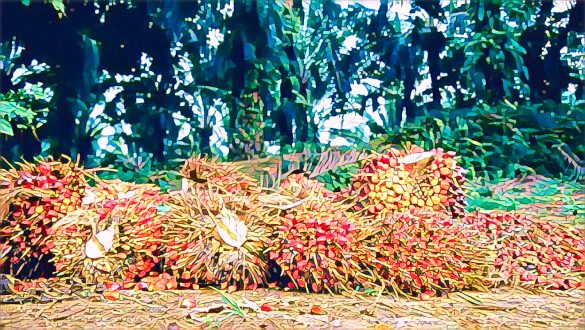Nigeria is spending $600 million yearly to import palm oil, a staggering figure given its past dominance in the global market. This dependency exacerbates food insecurity and inflation, raising questions about the nation’s agricultural policies.
The National Palm Produce Association of Nigeria (NPPAN), through its president, Alphonsus Inyang, recently highlighted this issue. Nigeria, once a leading palm oil producer, now imports over 50% of its consumption. This decline reflects a lack of commitment to agriculture at all government levels. In the 1960s, Nigeria controlled 60% of the world’s palm oil trade. Today, it ranks fifth, behind Indonesia, Malaysia, Thailand, and Colombia.
Nigeria’s climate is ideal for agriculture, with adequate sunlight and irrigation from several river systems. The country also has a large, young population that could drive an agricultural revolution. However, the lack of a clear vision and commitment from policymakers has stunted progress. Nigeria’s palm oil industry will continue to suffer without addressing this deficiency.
The $600 million spent on palm oil imports is a significant loss for a country with a foreign exchange deficit and a struggling economy. Properly utilized, this money could stabilize the local currency and improve the lives of many Nigerians. It is a missed opportunity for generating revenue from palm oil exports.
High food prices are another consequence of this agricultural neglect. The chairman of Lagos’s Mile 12 International Market, Shehu Usman Jubrin, attributes the recent spike in tomato and pepper prices to insecurity. He noted that most people in Internally Displaced Persons (IDP) camps are farmers who can no longer work their lands due to fear and displacement.
Addressing security is crucial for increasing food production. The National Bureau of Statistics reports a rapid rise in Nigeria’s composite consumer price index, with staple food items like garri, tomatoes, beans, rice, and yam seeing significant price increases. Experts cite insecurity, high transportation costs, climate change, and currency instability as the main causes.
Nigeria needs a radical overhaul of its agricultural management system. The Ministry of Agriculture and Food Security should support NIPPAN members with seedlings, and all states, including the Federal Capital Territory, should invest more in agricultural production. This approach would enable Nigerians to consume locally produced food and reduce reliance on imports.
The plight of palm oil in Nigeria is a microcosm of broader agricultural issues. As long as insecurity and poor policy hinder agricultural productivity, food prices will remain high, pushing more families into poverty. It’s time for Nigeria to reclaim its agricultural potential and ensure food security for its citizens.
Source: The Guardian


